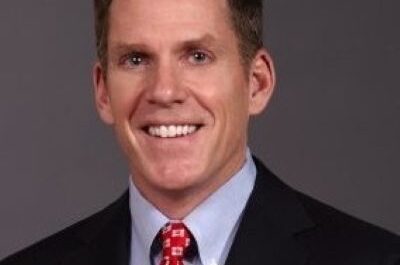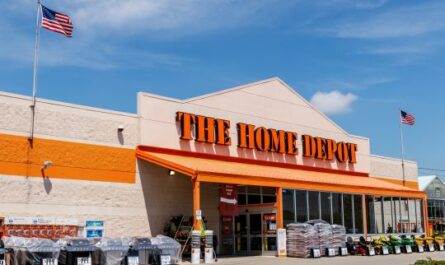Letters are going out to furniture retailers warning of price hikes and surcharges of 4% or more

HIGH POINT — Dreaded price hikes are hitting furniture retailers nearly across the board as manufacturers move quickly to pass on a portion of the enormous increase in the cost-of-doing-business hitting their own operations.
Some suppliers are calling the percentage hikes surcharges, suggesting they’re temporary in nature and tied to unusual circumstances, such as ongoing container shortages and other transportation problems. Some are calling them product price increases flat-out and saying they’re tied to the surge in consumer demand and the rising costs of raw materials ever since stores reopened this spring. And some appear to be confusing the two, calling the increases a surcharge even if they’re based on rising raw material costs out of their control and with no signs of dropping anytime soon.
But whatever they’re called, they’re here in force, and they’re raising shipping and product costs for retailers by about 4% or more — even on goods that have already been ordered but have yet to be shipped or invoiced.
“The reality is we’re getting increases on container freight, on truckload freight, on foam, on OSB and plywood and other raw materials, and they’re pretty much (added immediately),” Todd Wanek, CEO of Ashley Furniture Inds., told Home News Now about rising costs spiraling out of Ashley’s control.
Take foam, for instance. With the surge in demand and the foam producers’ inability to keep up, the nation’s largest furniture retailer and supplier and others are saying foam makers have declared a “force majeure” — essentially stating they are no longer honoring their previous quotes due to unforeseen circumstances.
“We were basically told if you want to get it, you’re going to pay,” Wanek said. “We took an 8% increase one week, and the next week took another 8% increase over and above that.”
Ashley, he said, has been absorbing these kinds of increases for months now, and they’ve added up along with other increases to the cost of doing business, such as wage increases and retention bonuses just to keep people on the job. There has been such a deterioration in cost structure, and margins has been impacted so significantly, in 60 to 90 days’ time, “we felt we had no choice but to push this through.”
A recent letter from Wanek to customers goes into these acute pressures and challenges before stating Ashley, “made the difficult decision to increase our pricing,” by an average of 4% with the exception of some ready-to-assemble and bedding products, which will feature one-off price changes. The increase is effective Oct. 18 and “will be applied to any product invoiced/shipped on or after Oct. 18th.”
Wanek told HNN that the increase represents only a portion of the increase Ashley has faced.
“We typically like to give more notice than we did,” he said. “We gave 30-days’ notice on this one, and we’re hoping everybody gets their floors repriced as quickly as possible and they’re able to absorb this increase.”
So far, he said, dealers have been understanding. They’ve seen other costs rise. They know supply is constrained, containers are in short supply, jobs are hard to fill, and they’re getting the same kind of notices from their other sources.
Here are some details from other company letters obtained by HNN:
Southern Motion: A Sept. 15 letter to retailers said the motion upholstery maker will be adding “the current tariff surcharge into the price of our products (an attached sheet spelled out the price per SKU) as well as a raw material surcharge of 5% “to account for the more recent cost impacts outside of our control.” Both go into effect on shipments beginning Oct. 5, and the company said it will “review the surcharge routinely and adjust accordingly based on current market conditions.”
The letter refers to a “very dynamic operating landscape” impacted by factors such as tariffs, a tight labor market and inflationary pressures on certain commodities. When it first introduced a surcharge (September 2018) Southern Motion believed the challenges would be “mostly temporary in nature,” it said.
“Since the pandemic struck in March of this year, these operating challenges have increased significantly and have been further complicated by production inefficiencies associated with operating our facilities during COVID-19 and additional costs to ensure the health and safety of our employees.
“In addition, we are now experiencing significant commodity price increases in lumber, which has nearly tripled this year, driven by increased housing starts and commercial construction. Other component costs, including freight, have increased, along with polyurethane foam which is now on allocation due to raw material supply disruptions associated with hurricane Laura and unexpected facility shutdowns forcing our foam suppliers to declare Force Majeure.”
The company did not return a call for additional comment.
Franklin: An Aug. 24 letter notes the tariff exclusion on cut sew kits from China expired Aug. 7 and they’ll now see the full 25% tariff. As a result, Franklin is raising its surcharge from the current 3% to 7% of the invoice total effective on shipment on and after Sept. 28 for all of its product lines. Lingering effects of COVID-19 force it to move its Renevarre leather cutting and sewing back to China “to help with consistent shipping,” it added.
“It is apparent that the U.S. and China are very far apart on a resolution to the myriad of issues facing our two countries,” Peyton Passons, Franklin’s vice president of sales, marketing and merchandising, said in the letter. “As a result, we are moving full speed ahead to relocate all cut & sew out of China as quickly as possible.” The company did not return a call for comment.
Mahwah USA: “Effective on all ‘Landed shipments’ from September 16th, until further notice, we will add a ‘Temporary Freight Surcharge’ of $1,000 to each invoice,” replacing a $500 surcharge that had been in effect since Sept. 1,” CEO Guy Ray said in a Sept. 10 letter. He reminds retailers that last month, Manwah outlined the difficulties it faced securing containers and managing freight pricing demands.
“This situation has deteriorated, not improved,” which led Manwah to the latest action, the new letter said.
“While we continue to absorb the majority of these increases, it is not possible for us to continue to bear the entire financial burden brought on by the crisis.” Manwah declined to comment to HNN.
Albany Inds.: A Sept. 2 letter said it will implement a 4% surcharge on all domestically made goods effective on all shipments starting Oct. 5 “no matter what date the order was placed.”
Over the past 60 days, we have seen significant and impactful price increases on raw materials due to a huge spike in demand and costs associated,” Albany Chief Revenue Officer Bentley Jones said in the letter. “These increases include; Poly foam, Plywood, OSB and Hardwood upwards of 100% and in some cases more. The price of lumber alone has raised frame costs by an average of $12 per piece.”
Later he noted the increases Albany faces would call for a larger increase on retailers, “but we want to do all we can to preserve as much of the retail momentum we have all enjoyed.
“We are doing this as a surcharge increase because we will evaluate this continuously during the short term, and hope to reduce or eliminate it as soon as raw material prices pull back.” The company didn’t return a call for comment.
Klaussner: While this one is not a price increase notice, it may be even more jarring to retailers who received it. The company said it has stopped accepting new orders. (Update: A spokesperson for Klaussner said the letter referred to here went to select retail customers based on their annual volume, not all customers. The company, which will be showing during the October High Point Market, declined further comment.)
In a Sept. 16 letter, Chris Barg, Klaussner’s executive vice president of sales and marketing, noted the industry’s and Klaussner’s “substantial backlog” due to high demand and limited product because of “labor availability and COVID challenges.”
“We therefore have made the difficult decision to stop accepting new orders from your company on all Klaussner product lines effective Wednesday, Sept. 16.” Open orders will remain active, Barg said in the letter, but all open domestic upholstery orders are being rescheduled for next year. Klaussner won’t be able to provide firm dates until the first quarter and understands “if you need to cancel these orders,” Barg said in the letter.
“Import upholstery and case goods are backlogged into Q1 2021 as well.”
But back to the actual increases. “Everybody is doing it because they pretty much have to,” Ashley’s Wanek said.
“The industry is going through a lot of pain right now. There’s nothing any of us can do. We’re just trying to fight the battle and do our best to stay ahead of it and flow goods at the same time.”
Another supplier source who declined to be identified said, “we’re sensing the retailers understand it. They need to buy from reputable factories that are almost guaranteed to get the raw materials even at an increased price.”
The situation is different from past cases — when a supplier tried to push through a price increase and, “there was always three factories down the line willing to do anything to (pick up the business),” the source said. But given the extreme supply restraints, retailers aren’t willing to play that game today. They don’t want to deal with smaller factories promising a better prices and saying they’re not affected because “everybody knows they are.”




